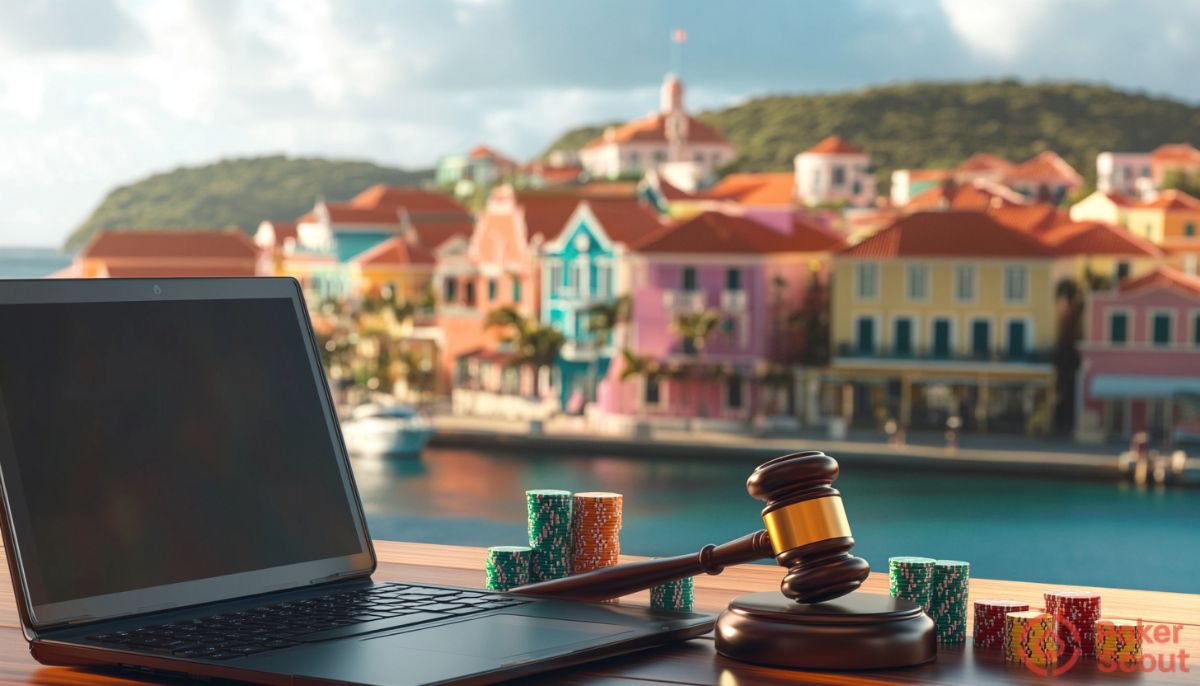The Curaçao Gaming Control Board (GCB) has received a formal complaint with major accusations including fraud, money laundering and financial mismanagement.
It’s been a big few days for lawsuits in poker, with Scott Ball suing ACR Poker. On top of that, this comes fresh off the back of a complaint about GCB-license-holders BC.Game specifically. They have since been removed from the list of Curaçao-approved gambling sites.
Many poker gambling sites (and casinos) hold a Curaçao gambling license. Far from being a shady enterprise, it’s recognized as a go-to for poker and casino sites. Check the footer of any casino and, before long, you’ll find one which has the Curaçao stamp of approval. This makes the news all the more impactful.
The complaints have been lodged by Dr Luigi Faneyte, a forensic financial investigator and politician, on behalf of the Public Prosecutor’s Office and other parties. And not just to local law enforcement; the FBI have reportedly been informed, too.
By no coincidence, the government of Curaçao suddenly passed a law which had been in the works since 2022. Known as the National Ordinance on Games of Chance, the new online gambling law will see the Gaming Control Board reborn as the Curaçao Gaming Authority (CGA).
What’s Changing?
The new naming convention follows other similar organizations, like the Malta Gaming Authority (MGA). But the update is definitely not just about keeping things neat and tidy.
The new changes will see:
- Removal of the two-tier licensing system of the GCB
- Higher fees for regulatory licenses
Until recently, the GCB only directly regulated four master license holders. These four holders were then able to contract permits to online gambling sites which applied for a Curaçao license. This act is known as “sub-licensing”, and means that the casinos usually face less intense scrutiny than they would when applying for a regular gambling license direct from the source.
Publicly, the aim was to give the organization better oversight of the casinos and online gambling sites which it licenses, and increase trust in the regulator.
In reality, it seems as if the GCB is quickly trying to bury its old way of doing things and minimize any harsh punishments.
Political Chess Move?
Because Faneyte is a member of the opposition parliament, some see this as a tactical political move.
Jadier Silvania – the Minister of Finance, who was personally named in the 400-page report – labelled Faneyte a “bomba”, which means “traitor”.
“Faneyte’s accusations have no basis,” said Silvania. “It is the right of every citizen to report criminal offences to the Public Prosecution Service. The Public Prosecution Service must be given time to investigate this. But this institute did not even get that space before Faneyte came out with a second report.
“Moreover, he goes to the international press with it, where he pretends it is the truth. But, Mr. Faneyte, the international press cannot help you with your reports. You only harm the island. You only base yourself on suspicions. That’s what I call ‘gossip’.”
Trouble was already brewing several months ago. Back in March 2024, the Australian Communications and Media Authority (ACMA) warned the GCB that, of the nearly-1,000 websites being blocked in Australia, a huge portion were licensed by Curaçao.
It is likely that the GCB, which was first founded back in 1999, will come out of this with stricter policies and regulations. But that doesn’t absolve it of any mistakes which have already been made, and so it’s worth watching this space closely for further developments – as the outcome may impact many top casinos and poker rooms.
